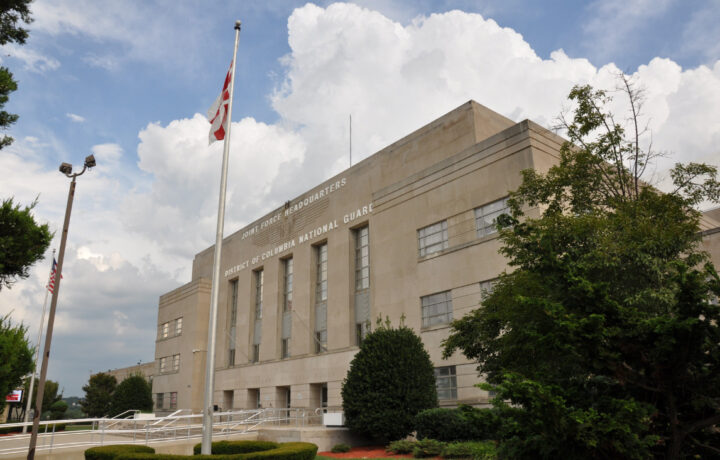The District of Columbia National Guard can trace its origins back to a time before there was even a district, and when militia units were first formed in Georgetown and Baldensburg. After the American Revolution, Congress officially recognized those and numerous militias of the United States, which in time became the National Guard.
However, when it was decided that a new capital city was to be created, an issue came up as to which militia would actually protect it – as the city wasn’t in a state and therefore there was no governor. Thus in 1802, the D.C. National Guard was created with a national mission, to protect the Federal Government. It is also the only National Guard that reports only to the U.S. president.
This month, as part of a strategic move to bolster the nation’s defense capabilities as well as to address emerging security challenges, the District of Columbia Army National Guard officially activated Delta Company, 223rd Military Intelligence Battalion (LING), during a ceremony at the D.C. Armory December 9.
“Events like this do not happen every day. It is a rare occasion when a state, territory, or district activates a unit,” said Maj. Gen. John Andonie, commanding general of the D.C. National Guard.
Part of the 74th Troop Command
The 223rd Military Intelligence Battalion, Company D, (LING) will be the latest addition under the Headquarters and Headquarters Detachment 74th Troop Command, which oversees the 372nd Military Police Battalion, the 547th Transportation Company, and 257th Army Band among other units.
The 74th Troop Command has been synonymous with high-visibility missions, including the COVID-19 mission during the pandemic, as well as First Amendment demonstrations and Presidential Inaugurations.
With the addition of the 223rd, it will contribute to national security by providing intelligence and linguistic support to all U.S. Army echelons.
The activation comes amid a rapidly changing threat landscape, marked by technological advancements and requiring a more agile and adaptable intelligence response, the D.C. National Guard noted.
“The mission of the battalion has evolved to address the dynamic environment we now find ourselves in,” said 1st Lt John Ibrahim, Delta Company, 223rd Military Intelligence Battalion commander. “While our company mission of providing intelligence and linguist support remains the same, we’ve shifted focus to emphasize integrated technological advancements and large-scale combat operations.”
Delta Company is comprised of highly trained and skilled personnel, and it will enhance the D.C. Guard’s multi-domain capabilities by providing intelligence and language proficiencies that are not found in standard U.S. Army units.
The unique skillsets and robust training requirements are considered critical for supporting U.S. Army operations.
“Linguists are very hard to find in some places of our country, but not in D.C.,” added Andonie. “We are in one of the most diverse cities in the U.S., if not the world. It is that diversity that will allow us to find the individuals to serve in this unit and provide the Army with the capability it needs for the wartime mission.”
Calling Upon Locals
The D.C. National Guard will recruit additional soldiers for the unit via traditional and digital channels while further leveraging existing networks within the intelligence community in D.C. That will include engaging in local community outreach events and collaborating with educational institutions.
According to the D.C. National Guard, prospective recruits can pursue a role as human intelligence collectors and linguists. The unit also has career opportunities for Officers and Warrant Officers. This activation has been touted to provide a unique pathway for individuals interested in contributing to national security through diverse intelligence roles.
Moreover, while this element is new to the D.C. National Guard, it brings a wealth of expertise.
Company D had previously been part of the Massachusetts Army National Guard’s 151st Regional Support Group and earned a Meritorious Unit Commendation for efforts in Operation Iraqi Freedom leading to the capture of Saddam Hussein. During its deployment to Kosovo, the unit was responsible for multiple multinational intelligence collection teams.
The unit has interpreters, translators, counter-intelligence, and interrogation support. They provide this support for the US Army, as well as the rest of the Intelligence Community (IC).
“What fills me with the most pride is the unwavering dedication demonstrated by my soldiers towards this organization,” Ibrahim said. “The transition from Massachusetts to D.C. presented unexpected challenges for many, yet their resilience and commitment to the unit have truly showcased the exceptional character of these individuals.”




